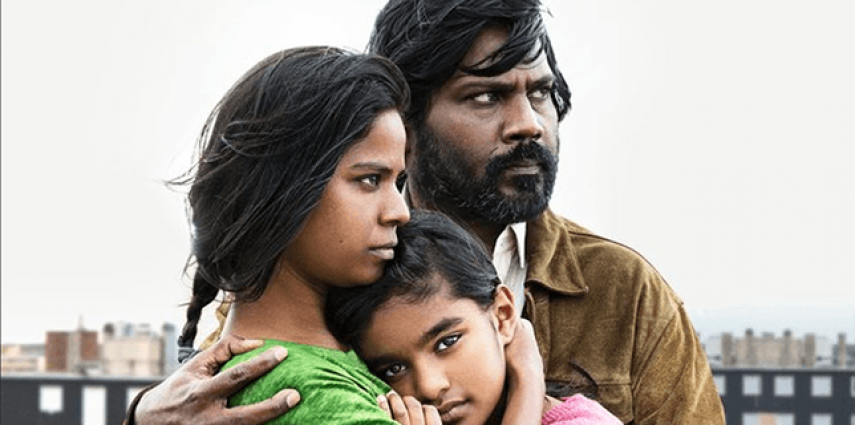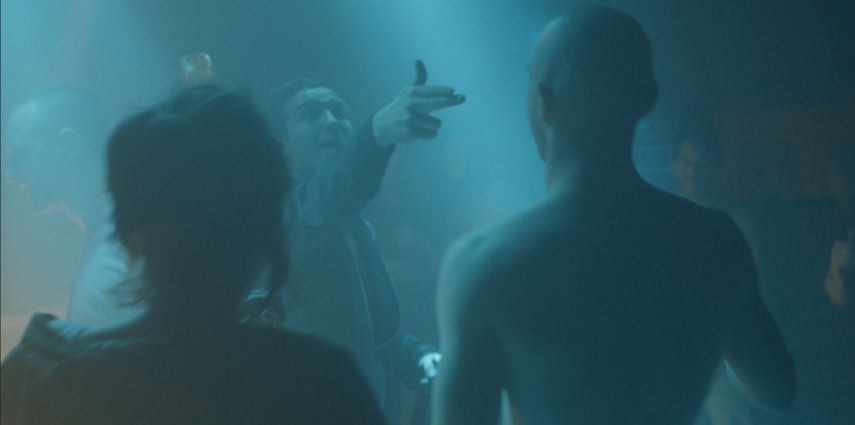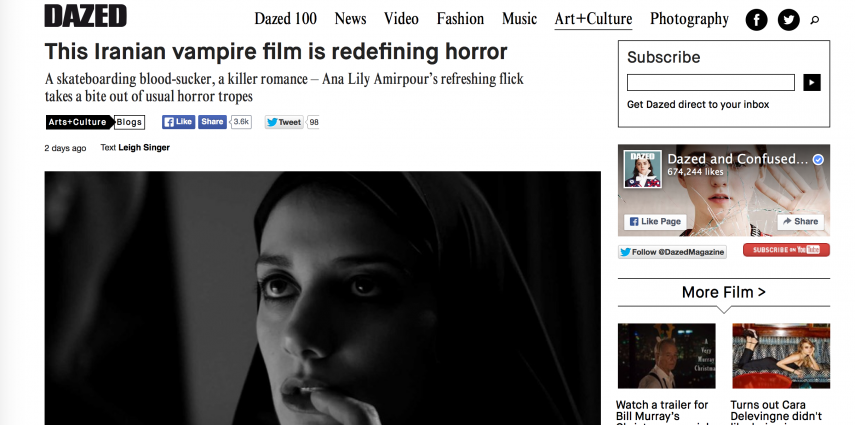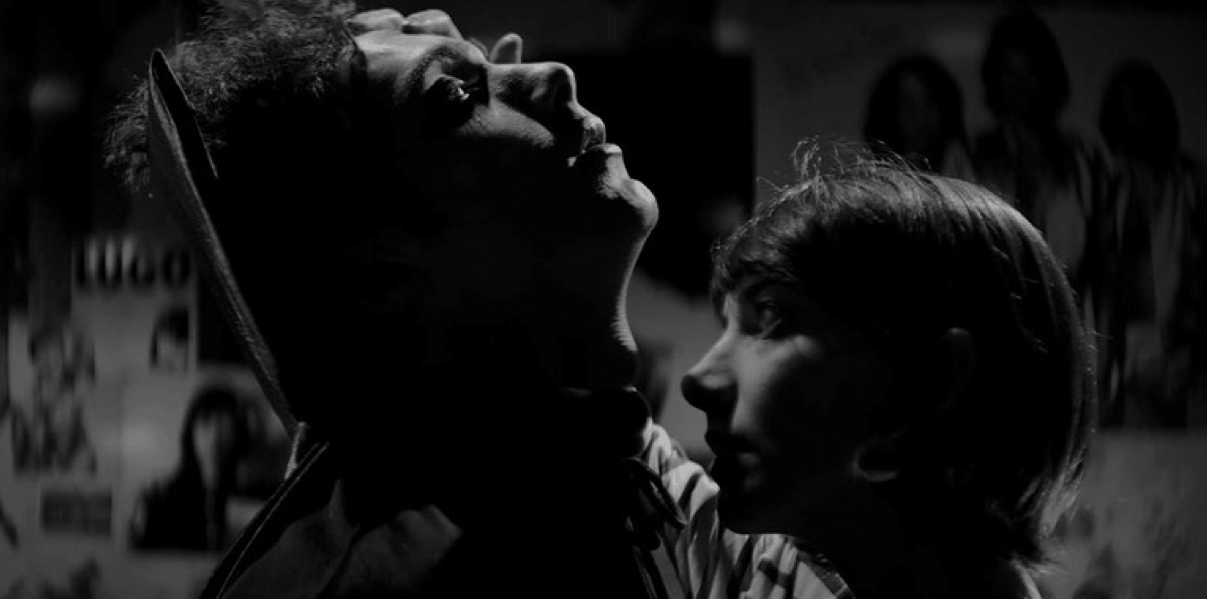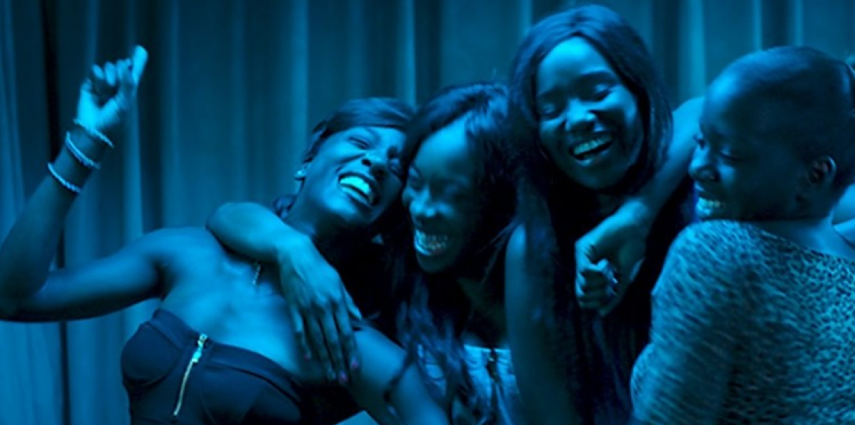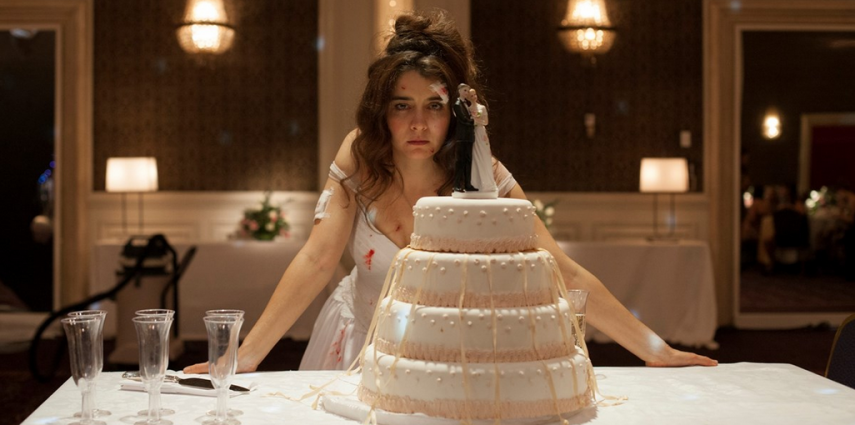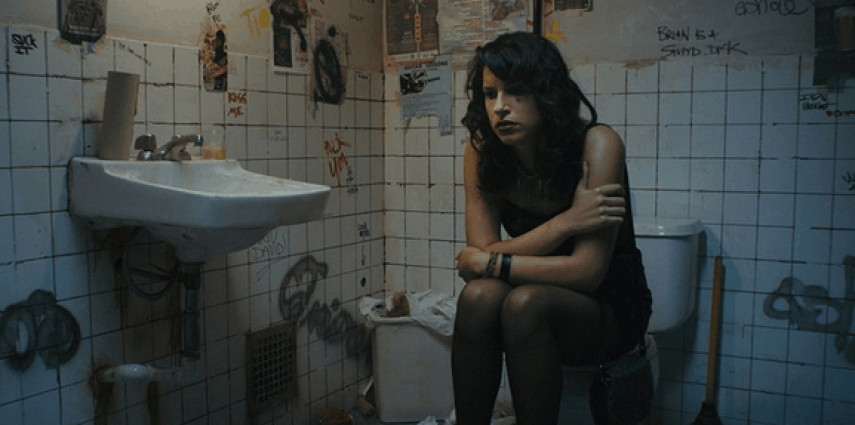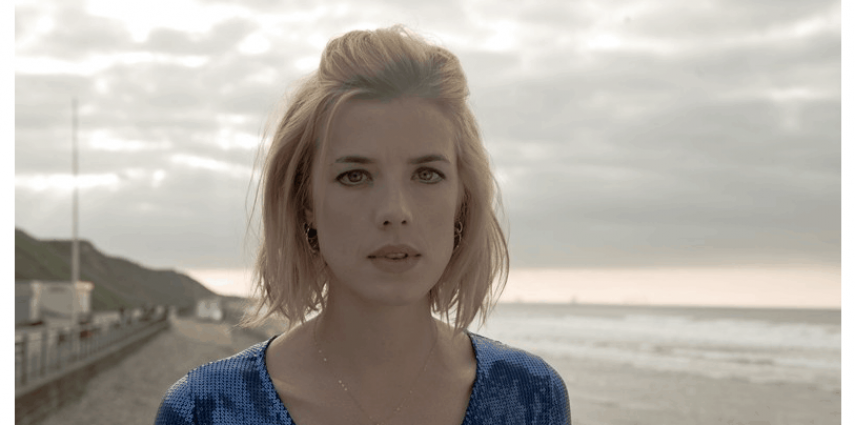Agyness Deyn’s charged starring-role debut
The former model with the peroxide crop shifts gears, portraying epileptic Lily in Electricity
Every time a Cindy Crawford (Fair Game) or Rosie Huntington-Whiteley (Transformers: Bend Over) lumbers gracelessly from runway to movie screen, the boo-boys gleefully lambast the very notion of an MTA: Model Turned Actress. That someone who’s evidently nothing but a vacuous mannequin should dare to talk, walk and even emote at the same time? Stick to the designer frocks, love; pose, pout and know your place. MTA? More like DOA.
Here’s a two-word f***-you to such presumptive, sexist bollocks: Agyness Deyn. 2007’s British Fashion Awards model of the year, the Lancashire girl whose distinctive peroxide crop and androgynous allure revamped an ailing industry after the initial supermodel cycle – Kate, Naomi & co – had spun out. Deyn’s everyday exoticism always suggested a certain nonchalance with the fashion world. Not that she didn’t work (it) hard; more that, while her catwalk stare was focused, her inner, artistic eye was wandering.
And so Deyn turned her attentions to acting. A play (The Leisure Society) here. A supporting film role (Pusher) there. Attention duly followed, though perhaps more from novelty value. That’s about to change big-time with her startling lead role in new British indie Electricity. Deyn plays Lily, a young woman suffering from temporal lobe epilepsy searching for her long-lost brother, while trying to keep her condition from overwhelming her.
Deyn’s in practically every scene. The entire film is filtered through Lily’s sputtering, hallucinatory perspective. It’s a role that demands complete physical, emotional and professional exposure, yet Deyn’s beguiling mix of strength and vulnerability makes it her own. It’s such a breakout performance that Terence Davies (Distant Voices, Still Lives), arguably England’s finest auteur, promptly snapped her up as the lead for his next film, Sunset Song. This MTA’s second career is lurching to vibrant life.
Lily’s condition isn’t one we’ve seen depicted on-screen. What was your key to understanding it?
Agyness Deyn: I basically camped out in the London office of this specialist. He’d show me videos of people who have it, because they have to collate the mental activity to the physical activity that’s going on. And I just kind of noticed that when (a fit) came on, it’s as if someone’s soul was being ripped out, you know?
That’s quite a description…
Agyness Deyn: It’s as if they’re being controlled by someone else. Not in a being-possessed way, and it’s not like being out-of-control either, because the actions are very repetitive. Some people have seizures and it’s not the same as an epileptic fit. Epilepsy is a rhythmic thing, it’s like a circuit that gets stuck.
Was there anything you could connect it to in your own experiences?
Agyness Deyn: Being controlled by something huge that you can’t overcome – everyone can relate to that in a tiny degree in their life. And just being a young woman and going through things, like puberty – it’s mental, isn’t it? As a young person going through that, you’re not in control of your body. But then magnify it a thousand times.
This is a huge step-up from your previous acting roles. Did you ever question: “It’s a great part, but has it come along too early…?”
Agyness Deyn: I didn’t really think about it in that way – ‘Am I ready yet?’ Maybe I should’ve done…
I’m not saying you weren’t ready…
Agyness Deyn: No, no, it’s good… That could have been a rational thought, but I read it and fell in love with Lily so much and knew that this was what I wanted to do for my career. So to audition and get offered it, when you truly connect to it on an emotional level – I was just so excited to be given the opportunity to create a story with all these amazing storytellers.
What was your most challenging scene?
Agyness Deyn: Hmm… There was one scene I did where she starts hallucinating with the snake on the table and she’s all over the place. When we were doing it, I felt so uncomfortable and thought it was terrible. And when I actually saw it, I realised it was actually because (Lily’s) in bits and by that time I’d been literally doing it for five weeks, six days a week. (I was) absolutely physically fucked and I was so in it, that I was experiencing what she was. And then I was like, ‘Oh, that’s where the magic happens…’
You obviously love the teamwork of filmmaking. Did you ever get the same collaborative buzz working in fashion?
Agyness Deyn: On a small scale. Sometimes you do a shoot and you’re just facilitating someone’s vision where you think, ‘OK, this isn’t really my thing but that’s my job I’m going to do it.’ But it can be very creative within the team – doing shoots with Tim Walker or Steven Meisel where they create a world. But it’s like a tiny drop compared to doing a film for weeks or months. You have withdrawal symptoms afterwards.
So Title A, the fashion label you started with your sister – is doing that a way to express more creativity within an industry you know?
Agyness Deyn: It’s something totally different. In a way it’s just clothes that me and the two other women I do it with… We just all crave a certain aesthetic. So we wanted to create it. And it’s going really well – we’re growing.
There’s often media cynicism when someone moves from one creative field to another, particularly so with a switch from fashion or modelling. How have you found that?
Agyness Deyn: It’s funny because it’s never been a consideration, and I only think about it when people bring it up…
Sorry, but it’s an obvious thing to ask…
Agyness Deyn: No, it’s a great question and, like you said, it definitely occurs. But I feel really strongly about what I want to do in life. And I feel that one should fulfil those things or else they’re not really living life. To be creative and work hard is such a beautiful thing.
“I feel really strongly about what I want to do in life. And I feel that one should fulfil those things or else they’re not really living life” – Agyness Deyn
Given that your husband (Giovanni Ribisi) is an actor, do you prefer to share work stuff or keep it separate?
Agyness Deyn: I don’t know, people in relationships have… Obviously, they talk about work and they share each other’s lives. But then you’re doing your own thing at the same time.
So would you do, say, script read-throughs together?
Agyness Deyn: No… (laughs)
Tell us about your Terence Davies experience. Did you know his work before?
Agyness Deyn: Yeah. Terence is such a beautiful storyteller from an emotional perspective. The first time I read the (Sunset Song) script, I just cried because it’s so emotional. I auditioned and months went by and then, I’ll never forget, I was on the street in LA and he called me up personally and offered me the job. That was a dream.
Is Sunset Song in the same vein as Distant Voices, Still Lives?
Agyness Deyn: I did just ADR a month ago, so I’ve only seen little snippets. It’s definitely very character-driven as Chris – the lead role – she narrates it as well. It’s very unsentimental in a way, but very connected to a bigger picture; relationships between humanity and the earth. Terence Davies is so… classy, without being at all pompous in any way. He’s all heart. And he has to feel it.
Electricity is out in cinemas on December 12
To see the original article at Dazed Digital click here: http://www.dazeddigital.com/artsandculture/article/22857/1/agyness-deyn-interview-electricity
Agyness Deyn – Electricity May 7th, 2015Leigh Singer
